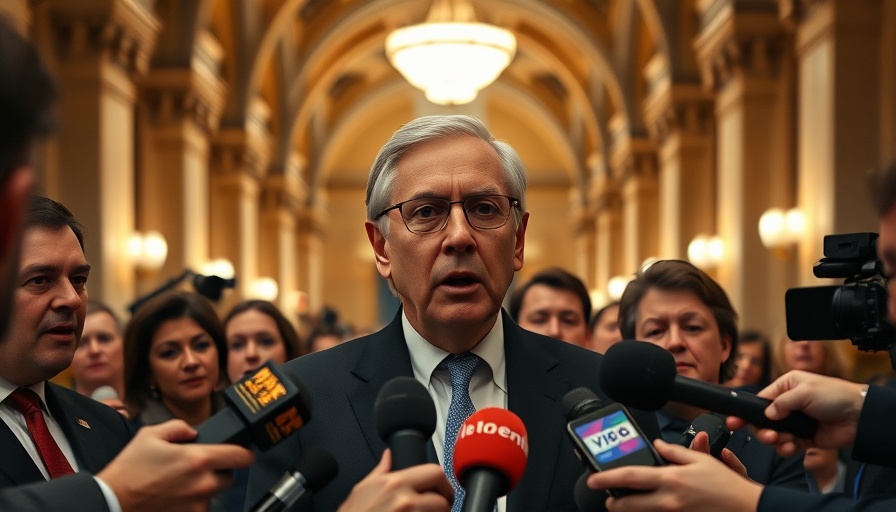
Medicaid Cuts: A Controversial Strategy
As Congress debates the significant cuts proposed to Medicaid within President Trump's expansive tax and immigration bill, the struggle reveals the complex balance between fiscal responsibility and the needs of millions of Americans relying on this vital healthcare program. With estimated losses of coverage for 10.9 million people, critics argue that the Senate's deeper reductions could exacerbate an already strained healthcare system, impacting vulnerable populations.
Unpacking the Issues: Who Benefits and Who Suffers
The proposed adjustments would reduce Medicaid spending significantly, targeting healthcare resources right when they are most needed. Senators are and have been grappling with the challenge of trimming these healthcare funds without adversely affecting the hospitals that serve needy patients. It's a fine line to walk—how do you cut billions and still provide adequate care for those in desperate need?
A Historical Perspective: Lessons from the Past
This struggle in Congress clearly echoes failures from Trump's first term, where a similar push to repeal and replace the Affordable Care Act failed dramatically amid fears of millions losing their health coverage. Just as John McCain’s pivotal thumbs-down vote derailed the previous attempt, dissent among GOP senators now signals trouble ahead for this latest bill. It's a vivid reminder of how political dynamics can shift rapidly in Washington, and that the consequences of policy decisions extend well beyond the Senate chambers.
The Political Landscape: A Tumultuous Road Ahead
The unfolding drama around the Medicaid cuts not only shapes the bill’s fate but also defines current political landscapes. With GOP leaders like Senate Majority Leader John Thune advocating for the bill, the push towards a vote by July Fourth hangs in the balance. Will the divisive health care cuts create an insurmountable rift within the party, or can they overcome individual concerns to support a unified agenda?
Public Sentiment: What This Means for Average Americans
As the debate narrows, Democrats assert that these Medicaid cuts threaten healthcare for tens of millions of Americans, leading to fears of losing coverage. For the general public in Marin County and beyond, this battle in Congress accentuates the uncertainty of healthcare access and costs amid broader tax changes that could also impact their financial situation. The complexity and scale of the proposed Medicaid reform positions it as a critical point of concern for many voters.
Conclusion: A Call for Transparency and Accountability
In light of these revelations, it is crucial for the public to remain engaged and voice their opinions. The outcome not only affects the funding for healthcare today but also sets the tone for future policy decisions impacting the nation’s well-being. As citizens digest this breaking news, keeping abreast of the developments can empower them to take action through channels such as community forums, discussions with representatives, and other forms of civic engagement.
 Add Row
Add Row  Add
Add 




 Add Row
Add Row  Add
Add 

Write A Comment